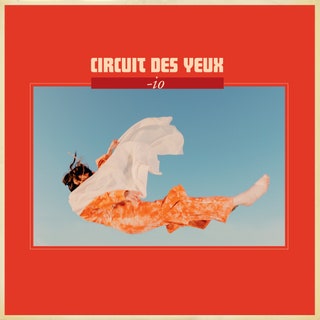I didn’t have a traditional music upbringing. I barely knew what music was before sophomore year of high school barring some Soundgarden tracks I heard on YouTube. This meant that I skipped the slowly learning about the most famous artists and went from essentially nothing to experimental rap. While I could do a whole blog about what this has done to my music taste, something I notably missed out on was listening to any classical music growing up, and it’s only recently that I’ve been getting into that. And for anyone who wants a new album that brings the spirit of classical music with modern sensibilities for the discerning JPEGMAFIA fan, “-io” is the album for you.
Circuit des Yeux’s prior work exemplifies an appreciation of the old ways. Their only concert of 2021 will be playing at an opera house with a 16-piece orchestra and their last project was an original score for the 1923 silent film “Salomé”.
Structurally this is a departure from a typical verse-chorus set of builds and releases. Songs don’t come together in bursts, rather they start strong and finish even stronger, with a steady buildup of layering melodies. Oh there are both verses and choruses, but the songs don’t unfold around them, rather the lines are used as instruments, to evoke pure emotion with each word being delivered with its own passionate focus. “Zero is a hero” doesn’t sound inspiring, menacing and spiritually rousing when it’s in a lyric sheet, but when roared on album highlight “Vanishing” it’s downright iconic.
Haley Fohr, the mastermind behind Circuit des Yeux, has the perfect voice to anchor what otherwise could be a runaway train of furious strings and horns. Her 4-octave vocal range commands the listener to pay attention through the gale, able to draw you in alongside a single high note or descend into madness alongside forward marching drums and swirling strings. Moments of barely controlled aggression on songs like “Neutron Star” pair with the soft meditation of a “Sculpting the Exodus”, and the end of one song and the beginning of another often feel like arbitrary points; necessary divisions to turn one long saga into album form.
I need to get into more music like this. I’m not going to pretend I understand all of the themes Fohr is working with on this album, or that I’ll understand on the 100th listen. But the fun of experimental music is that you don’t really have to. If there’s one thing this album does it’s to take listeners on a wild ride, and I’m perfectly happy to sit back, prepare for anything and feel like just by listening to “-io” I’m furthering my education.
-Erie

